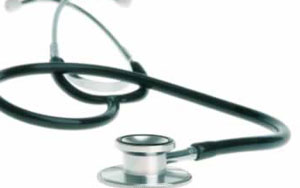
Practicing family physicians from the UNC Department of Family Medicine have teamed up with The Carrboro Citizen to bring you a weekly feature responding to your questions about health and medicine. Send your questions or comments to yourhealth@unc.edu
This week we respond to questions about urinary tract infections and celiac disease.
Dear HOUSE Calls, I have a urinary tract infection and my doctor said that there was E. coli in my urine. I’ve heard E. coli can be dangerous and has even led to some children dying. Should I be concerned about that?
What you have heard about is a specific strain of E. coli, known as 017 H7. It is occasionally linked to petting zoos. But you should know that we all are full of E. coli, as it is one of the most common bacteria that live in our guts. It is also the culprit for 80 percent of urinary tract infections. We certainly recommend treatment. Urinary tract infections can be quite painful, and if left untreated they can lead to kidney infections and blood infections. However, these are usually quite easy to treat.
Dear HOUSE Calls, I was diagnosed with celiac disease three years ago. I have been a vegetarian all of my adult life. I am having trouble cutting back on carbohydrates as a vegetarian. Do you have any suggestions?
Cutting back on carbohydrates as a vegetarian is a little tough, but certainly possible. It may require some flexibility and creativity on your part. For our readers, celiac disease is intolerance to gluten. Gluten is a protein found in wheat, barley and rye. If you have been diagnosed with celiac disease by an antibody test or biopsy, we recommend you really try to eliminate gluten. You can still enjoy some carbohydrates, such as those found in rice, corn and potatoes. There are now many products on the market using rice flour as a substitute for wheat. These are made for and marketed to people on a gluten-free diet. You can also have free rein on legumes (e.g., beans and soy), fruits, vegetables and all sorts of the usual vegetarian protein sources. If you are a vegan (no dairy or eggs) this will be harder still. Eggs, chesses, milk and yogurt are great sources of protein and calories. Lastly, we hope you will consider seeing a nutritionist. This is something we encourage for all of our patients with Celiac disease, but this is especially important for a vegetarian.
House Calls is a weekly column by Dr. Adam Goldstein, Dr. Cristy Page and Dr. Adam Zolotor on behalf of Your Health and the UNC Department of Family Medicine.

